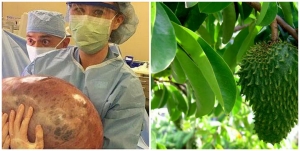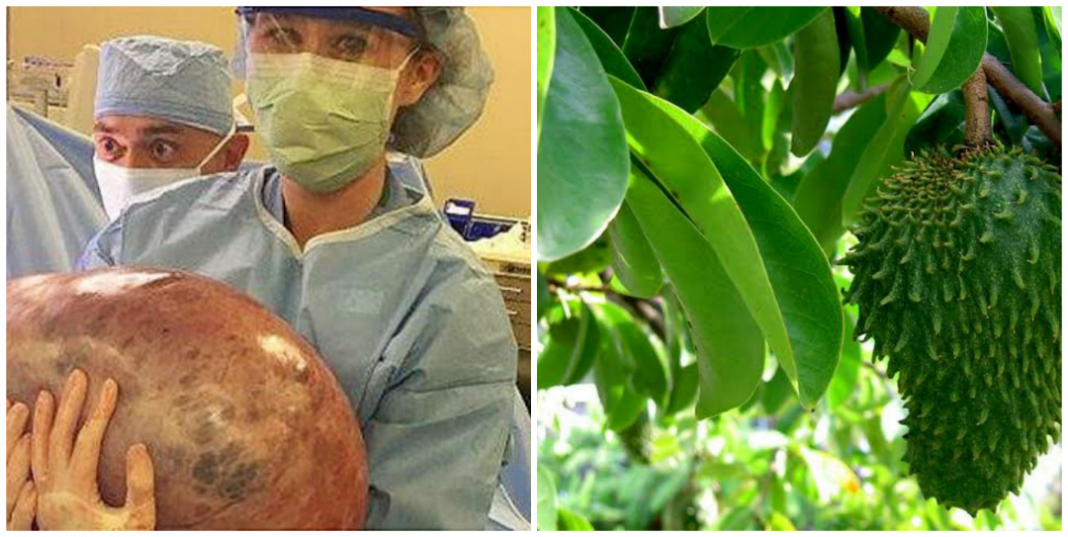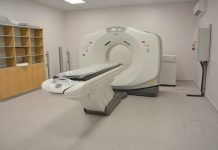Can soursop leaves shrink ovarian cyst? Soursop leaves and guava leaves for ovarian cyst?

Before I answer these questions, what is a ovarian cyst and what are the signs and symptoms of ovarian cyst?
Read below.
Ovarian cysts are solid or fluid-filled pockets in or on your ovary. They are common, especially in women who are pregnant or who haven’t gone through menopause yet (women of childbearing age). Most of the time, they’re painless, harmless and can be unnoticed. You might get one every month as part of your menstrual cycle and never know it. They usually go away on their own without treatment.
A cyst becomes a problem when it doesn’t go away or gets bigger. It can become painful and infected or even rupture (burst). There’s also the possibility of cancer, but it’s rare. The chances go up as you get older. Repeated ovarian cyst could be a precursor to ovarian cancer.
An ovarian cyst is different from an abscess because it is not filled with pus. A pus-filled sac is an abscess. P
PID is a cause of ovarian abscess.
Most times, ovarian cysts are symptomless and will go away without treatment but sometimes, some cysts of the ovary are problematic and will require medical intervention to make them go away.
Symptoms Of ovarian cysts
Most cysts don’t cause symptoms and go away on their own. However, a large ovarian cyst can cause:
👉Pelvic pain — a dull or sharp ache in the lower abdomen on the side of the cyst
👉Fullness or heaviness in your abdomen. Abdominal swelling
👉Bloating,
👉Pain with sexual intercourse, especially with deep penetration (dyspareunia)
👉Irregular menstrual periods
👉A feeling of lower abdominal or pelvic pressure or fullness
👉Chronic pelvic pain or low back pain throughout the menstrual cycle
👉Pelvic pain following exercise or vigorous activity
👉Pain or pressure with urination or bowel movement
👉Nausea and vomiting
👉Breathlessness
Vaginal pain or spotty bleeding from the vagina
👉Infertility
👉Problems having bowel movements
👉Feeling pressure to pass stool
👉Abdominal pain and tenderness
👉Heartburns
👉Indigestion or dyspepsia
👉Feeling full early when eating. Early satiety
👉leg swelling
Causes OF Ovarian Cyst
Ovarian Cysts come from countless factors. And it usually takes a lot of time to figure out the real causes behind your problem. Here is a list of some potential catalysts that cause your ovarian cyst:
👉Sudden imbalance of your hormones (hormonal imbalance)
👉Irregular menstrual cycles
👉Early menstruation (when it happens at or under 11 years old)
👉Smoking
👉Hypothyroidism
👉BMI more than 30
👉Medications: Using some specific kinds of medicines, for example, Clomiphene (which is useful to prevent the development of Corpus Luteum cysts)
Women who ovulate have a higher risk of developing ovarian cysts.
The likelihood of developing cysts in the ovary is lower after your menopause. For those who have ovarian cysts after menopause, it is probable that they are in danger of ovarian cancer.
Women with PCOS also have multiple ovarian cysts with associated complications like infertility, diabetes, hypertension and obesity.
💥💥💥💥💥💥💥💥💥💥💥💥💥
Now to your question…..
Can soursop leaves shrink ovarian cyst?
The answer is no. We recently operated on a 19 year old girl with massive ovarian cyst that has even torsioned with weight loss and massive abdominal swelling. She has tried all kinds of herbs including soursop leaves and even guava leaves to shrink the ovarian cyst since she was diagnosed at 18 years but it did not work. Rather the ovarian cyst grew bigger in size and even nearly took her life. Soursop leaves does not and cannot shrink ovarian cyst. Large ovarian cysts will require surgery by a gynaecologist.
Soursop leaf cannot cure or shrink ovarian cyst. Soursop leaves for PCOS? Don’t bother. Women with PCOS should not bother taking soursop leaves infusions or herbal product… It doesn’t work. A combo of soursop leaves and guava leaves does not shrink ovarian cyst either.
Thank you.
This article is the intellectual property of www.nimedhealth.com.ng
























